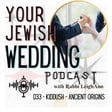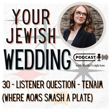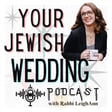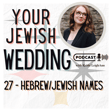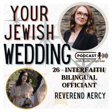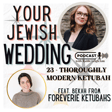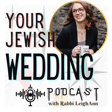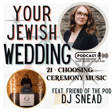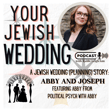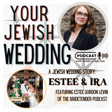
24 - Circling and its Significance for Modern Couples
What does the circling under the chuppah MEAN? Will it be weird if we do it at our wedding? Will we feel awkward? Will we freak out our guests? Should we explain it? Aaaaarggh!
Yes, for many couples, considering circling under the chuppah just feels like TOO MUCH. Too much Jewiness, too much time, too much foreign weirdness...and yet, many still feel drawn to it.
Are you hoping to include circling in your Jewish wedding and searching for an explanation for the ritual that speaks to YOU? You've come to the right place.
- Watch some videos of others circling to get an idea for how it looks and whether you want to do it.
Don't forget - you can reach me (Rabbi LeighAnn) any time at www.yourohiorabbi.com or everyonesfavoriterabbi.com or rabbileighann.com !
Fill out the contact form there if you'd like to work with me on your wedding. There are SO many options, from Ketubah consulting to ceremony planning. If there's something you have in mind, don't hesitate to ask - I'm here to help!
IG: @yourohiorabbi
Podcast IG: @yourjewishweddingpodcast
Send questions for me to answer on this podcast to:
yourjewishweddingpodcast@gmail.com
Hope to see you next time! Remember - there is ALWAYS more learning to do!
<3 Rabbi LeighAnn
